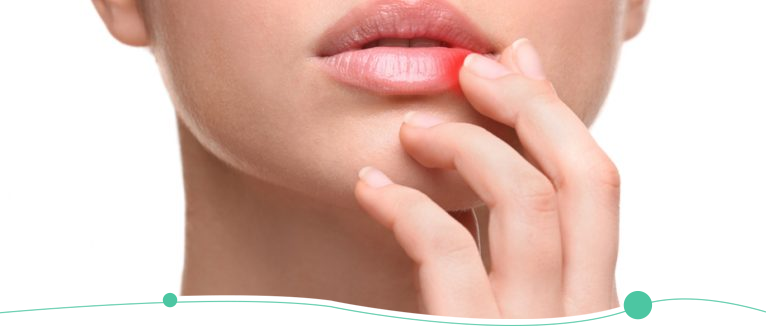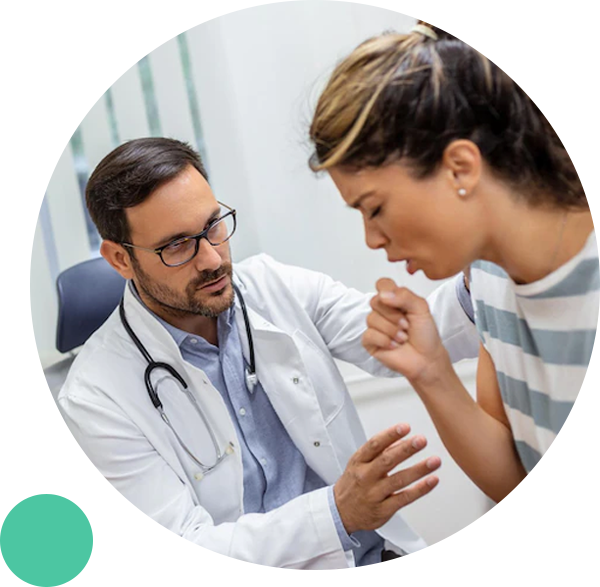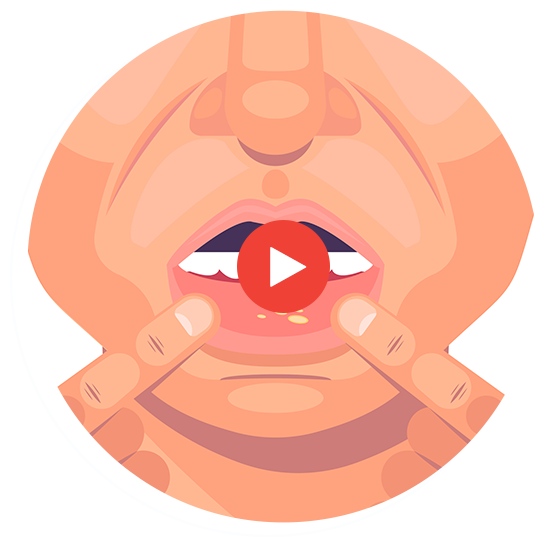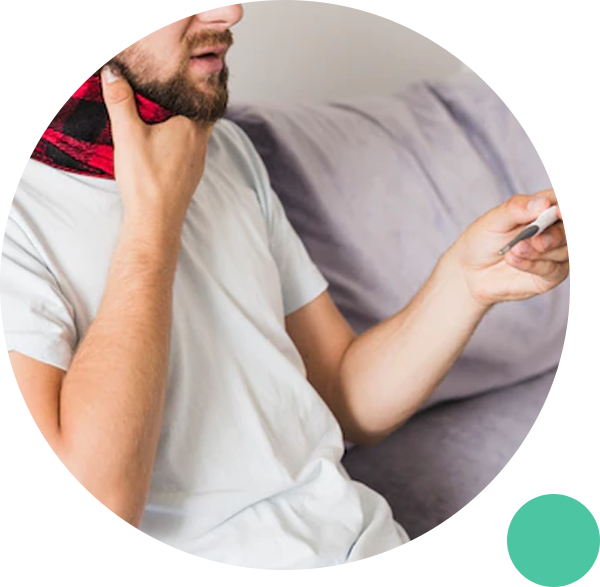

TELMDCARE
Cold sores, also known as herpes simplex labialis or fever blisters, are experienced by almost half the American population aged between 14 to 49. In fact, it’s estimated that about 90 percent of the world’s population has at least one type of HSV which causes these cold sores.
So, what really are cold sores?
Cold sores are basically small, painful red blisters filled with fluid that appear in groups on the lips and around the mouth area and rarely on the nose, fingers, or inside the mouth. They appear as patches and can last for about two to three weeks. They are typically caused by the herpes simplex virus type 1 which, as previously stated, is very common. And being highly contagious, cold sores can be spread by close contact between people.
While there’s no permanent cure for them to keep them from coming back, their symptoms can be managed through medication. Moreover, treatment can help future outbreaks by reducing their frequency as well as severity.
TELMDCARE
Is covered by many popular
insurance plans

Cold Sores
The cold sore can go through several stages, with some people experiencing itching and burning. Before a small, painful blister appears, many people feel a tingling or burning sensation around their lips for a couple of days. These are usually located near the nose or mouth. The small blisters can then merge and form a crust or an overlying layer of skin.
The appearance and symptoms of a cold sore vary depending on whether it’s your first outbreak or a recurring one. The first signs of the illness usually appear within a couple of days after you are exposed to the virus. The blisters can heal in about two to three weeks, and the subsequent outbreaks usually appear at the same location.
Some of the most common first-time symptoms of a cold sore include fever, muscle aches, and pain in the throat and mouth. Children under five years old may also develop cold sores in their mouths, which are often mistaken for canker sores. These are not caused by the herpes simplex virus and involve only the mucous membrane.


TELMEDCARE
What we treat
We treat a variety of acute and chronic conditions and provide expert medical advice and guidance for our patients.
TELMDCARE
What Do Cold Sores
Look Like?
Cold sores themselves are a symptom of the herpes simplex virus. However, sometimes oral herpes cases have no symptoms at all. But some people who’re infected may get cold sores. These appear usually as red blisters on lips or around the mouth area, but they may appear on other parts of the face too.
Typically, the sore appears near the site where the virus has entered the body. And one may not develop cold sores right after being infected—it could take up to 20 days in first-time infection cases for the cold sores to appear.
The cold sores appear in stages:
Stage 1: An itching, burning, or tingling feeling near the place where the sore will appear—this is the best time to start treatment.
Stage 2: After about 12 to 24 hours of itching, blisters start appearing in patches that are red, swollen, and typically very painful.
Stage 3: The blisters eventually release the infected fluid. The open blisters remain for 2 to 3 days — this is a highly contagious period.
Stage 4: Scabs start forming at this point, and they may crack and bleed.
Stage 5: The scab sheds on its own.

Cold sores may be accompanied by other symptoms:
- Swollen glands and gums
- Muscle ache
- Fever
There can be additional symptoms with first-time infections:
- Stomach problems
- A sore throat
- Burning sensation in the mouth accompanied by pain
- Headaches
- Difficulty swallowing
Additionally, if any symptoms related to the eye or eye area appear, it’s imperative to reach out to a virtual doctor for cold sores. This is because in some rare cases, the herpes simplex virus could result in complete and irrecoverable vision loss if left untreated.
TELMDCARE
As Seen On


How Can TelMDCare
Help You with
Cold Sores?
While there is no permanent cure for cold sores, medication can be used to manage the sores and future outbreaks.
Our certified urgent care physicians are just one appointment away and can take a look at your blisters and prescribe antiviral medication that can reduce the pain and duration of the cold sores. Moreover, they can recognize rare and potentially harmful symptoms that you may have missed.
Early treatment can also help you reduce the frequency and severity of future outbreaks and our experienced physicians can guide you on how to best prevent future outbreaks.
Our healthcare services are both convenient and affordable. Sign up and book an appointment today to let us help you deal with your cold sores.
TELMDCARE
Sign Up
Our best online doctors on call ensure that the services we provide are adequate, high quality, and affordable.
Get in touch with us today for more details or Sign Up for a quick consultation.
TELMDCARE
Common FAQs Linked to Cold Sores
Can Children Get Cold Sores?
Children can get cold sores as well. Children who’re younger than 5 years of age may have cold sores inside their mouths and the lesions that appear may be mistaken for cancer sores. Moreover, since most children get cold sores for the first time, their symptoms can be fairly severe and there’s a chance that the infected child may become seriously sick.
When Are Cold Sores Most Contagious?
Because the virus spreads fairly easily through infected body fluids so having oozing blisters is a relatively more contagious phase. However, a large number of patients with the virus may never show any symptoms but can still pass on the virus to someone else.
What's the Best Time to Start Treatment?
The best time to start treatments like ointments and oral antiviral medication is when you notice the tingling sensation. This is when the blisters haven’t yet formed and starting treatment early can reduce their severity and the overall duration.
Can Cold Sores Be Deadly?
Usually, cold sores are fairly manageable and disappear within 2 to 3 weeks without leaving any scars, but for some, they can be life-threatening. Cold sores may become more serious in people with very weak immune systems due to aids or other conditions or medications.
Do Home Remedies for Cold Sores Work?
Home remedies like cold compresses and creams and balms may work temporarily to ease the pain and appearance of the blisters. Pain medication like ibuprofen or certain over-the-counter ointments and creams with lidocaine and benzocaine may also help. But it’s best to start antiviral medication with a telemedicine doctor’s advice for cold sores.
Can There Be Any Severe Complications from Cold Sores?
Although rare, complications from cold sores are not unheard of. The virus may spread to other body parts causing long-term damage. Herpes whitlow can develop on the fingers while you may get warts or ulcers on the genitals. Other complications include eczema herpeticum on the skin, HSV keratitis that can lead to vision loss, and meningitis.
To lower the risk of outbreaks, simple steps can be taken:
Although rare, complications from cold sores are not unheard of. The virus may spread to other body parts causing long-term damage. Herpes whitlow can develop on the fingers while you may get warts or ulcers on the genitals. Other complications include eczema herpeticum on the skin, HSV keratitis that can lead to vision loss, and meningitis.
- Avoid close contact with people who have open blisters
- Keep your immune system strong
- Stay away from triggers when possible after getting infected for the first time



